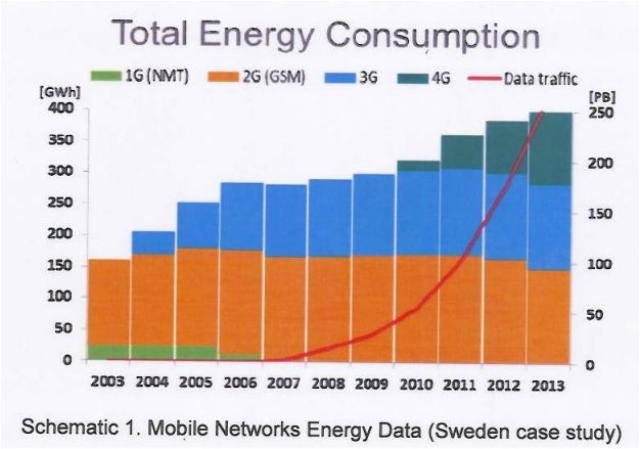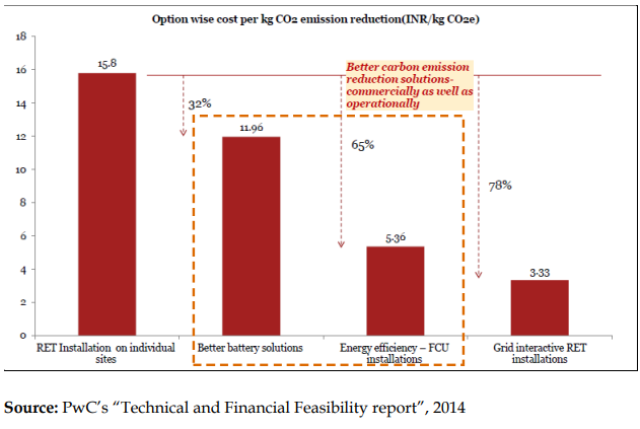 Telecom Regulatory Authority of India (TRA) is in the process of coming out with its policy regulation on green telecom.
Telecom Regulatory Authority of India (TRA) is in the process of coming out with its policy regulation on green telecom.
Globally, the Information and Communication Technology (ICT) sector contributed 0.7 percent of greenhouse gas (GHG) emissions in 2015, which is expected to increase to 1.43 percent by the year 2020.
Registration opens for webinar — ISP Summit 2017 and win gifts
In the last six months, several telecom operators submitted their suggestions to TRAI responding to draft consultation paper on green telecom policy.
Reliance Communications
There is no need for setting any renewable energy targets in the telecom sector. Any target and timeline if required at all should be prescribed only for carbon footprint / carbon intensity reduction.
Mobile operators should be allowed to decide the method / technology suitable for their networks in achieving the carbon reduction targets and any particular mode of deployment such as RET should not be prescribed / mandated.
Government should provide power to the cell–sites at the Industrial rates on the priority basis. Government should introduce fuel subsidies for operators either through USOF or any other alternative mechanism.
There should be differential tax structure to the telecom operators to provide telecom services till electricity board connections become available at industrial rates. DoT should consider rebate of 1 percent, 2 percent and 3 percent in USOF levy, on achieving the carbon reduction targets by the TSPs.
 Broadband India Forum
Broadband India Forum
There is no need for any new mandatory guidelines or targets. Initiatives for reduction in carbon footprint should be undertaken by the industry on a voluntary basis and it should be left to the operators to decide on the enablers / methods for reducing the carbon footprint.
Idea Cellular
TRAI should carry out a separate consultation on the issue of green initiatives / RET so that the various pertinent aspects can be looked at holistically and a way forward decided on the same.
RET deployments should not be mandated and the same be left to the commercial viability as per the TSPs business plans. The overall approach on carbon emissions reduction and RET deployments should be to allow TSPs to self-regulate and self-monitor.
Reductions in taxes and duties, Fuel subsidies from the USO and reduction in license fees are some of the options that need to be explored in order to encourage deployment of energy efficient solutions.
Airtel
The grid supply is able to meet only 40 percent of the demand of the telecom sector. However, the percentage share of diesel consumption by mobile towers is a mere 1.54 percent of the total diesel consumption in India, and yet, the telecom sector has been inordinately targeted under the green telecom policy.
Since the alternate solutions adopted by the industry have yielded the desired outcome, there is no need to mandate any specific solutions for the achievement of the desired targets. A neutral approach is needed towards the measures to be adopted by the industry. A reduction in Carbon footprint per TB should be the sole focus. There should not be any mandate for the installation or deployment of any particular type of infrastructure to achieve the targets.
Vodafone
Auditing the carbon footprint of a telecom network can only be done if the mechanism is based on actual verifiable consumption. The carbon footprint should be calculated based on direct emissions from diesel consumption only.
COAI
Telecom Industry accounts for a fraction of the carbon footprint. There is no need for the separate target for deployment of the RETs. Necessary modification in the license should be done in order to remove RET deployment Targets. Industry should be allowed to voluntary deploy various solutions for the reduction of carbon footprint and hence no targets should be enforced on the Industry.
In case government wants to impose any targets on the Industry the same should only be the carbon abatement / reduction in Carbon Intensity in percentage terms.
